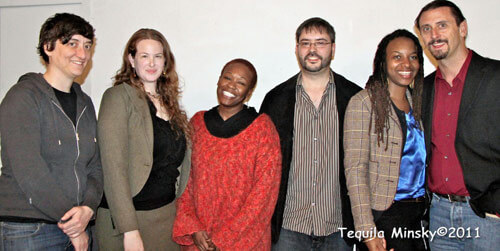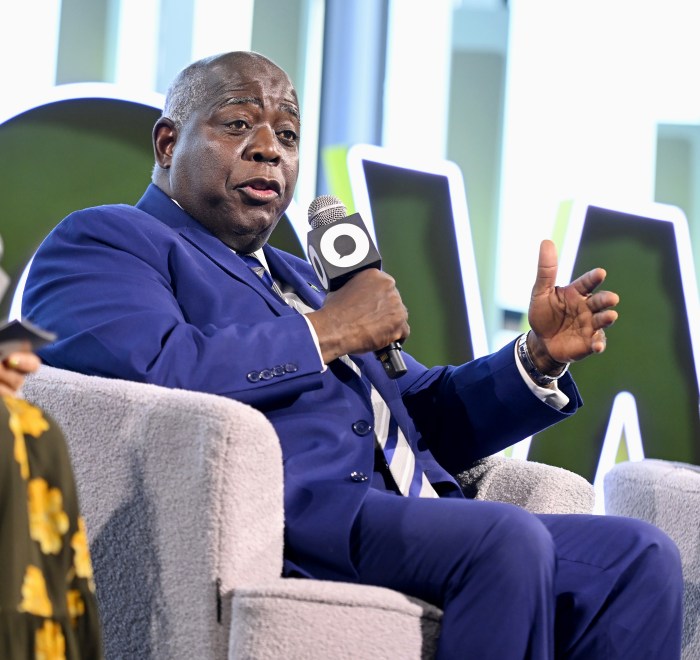The Jan. 12, 2010 Haitian earthquake, with so much loss of life, injuries, and property devastation, magnified the social ills that beset Haiti. Centuries of underdevelopment, misguided foreign and domestic policies have contributed to the vast inequalities and social and economic exclusions in the country.
On Jan. 27, the Brecht Forum hosted the NYC book launch of “Tectonic Shifts” with a discussion. The book offers on-the-ground perspectives about Haiti’s earthquake and the aftermath.
York College Anthropology Professor Mark Schuller, co-editor with Pablo Morales, an editor at NACLA, moderated a panel with four other essay contributors who were among the scholars, journalists, and activists highlighting the struggles Haitian people face today.
Schuller pointed out that half of the 46 articles were authored by Haitians living in Haiti and six in the Diaspora. Of the contributions, most are single authored but organizations and/or groups of individuals contributed several pieces.
The contemporary realities are divided into nine chapters in two major divisions––“Geopolitical Structures” and “On-The-Ground Realities”: vulnerability, foreign domination, NGOs, “disaster capitalism”, peasants, the camps, women, public health, emerging movements.
“Tectonic Shifts” offers insight into nagging questions of why Haiti appears to be persistently stuck in a quagmire of dysfunction and why recovery is so unbearably slow. Not all is hopeless. Essays on Haitians pro-active during the aftermath and empowering grassroots works are also covered.
Leading off the panel, Haiti-resident Melinda Miles read “Assumptions and Exclusion: Coordination Failures During the Emergency Phase” from chapter two on foreign domination.
Over a background of projected slides, Lisa Davis, human rights advocacy director from Madre, gave case studies of why just giving whistles as a rape deterrent doesn’t work unless the women are organized and trained as to what to do when one woman blows the whistle–other women must blow their whistles and come outside, their presence together is powerful.
Editor of the Boston Haitian Reporter and founder of the Diaspora organization, Haiti 2015, Manolia Charlotin read from her selection “The Haitian Diaspora: Supporting Reconstruction From the Centers of Power.”
Co-editor Schuller, who also co-produced the film about Haitian women “Poto Mitan”, read his interview with Haiti’s first Minister of Women’s Affairs Lise-Marie Dejean, “Need to Stay Vigilant.”
Passionately underscoring the necessity of authentic inclusion from Haitians, Wesleyan associate professor Gina Athena Ulysse read “Why Haiti Needs New Narratives Now More Than Ever” from the concluding Shifting the Terrain chapter. She recognized the book’s conscious presence of Haitian voices.
It was lighting speed, a mere 10 months, from the time publisher Kumarian and co-editor Schuller met until the book’s publication, in time for the earthquake’s second year anniversary. Attracting those interested in Haitian politics, activism, and development work, university classes are already using the book, currently sold out. The second printing will be on the shelves shortly.


























